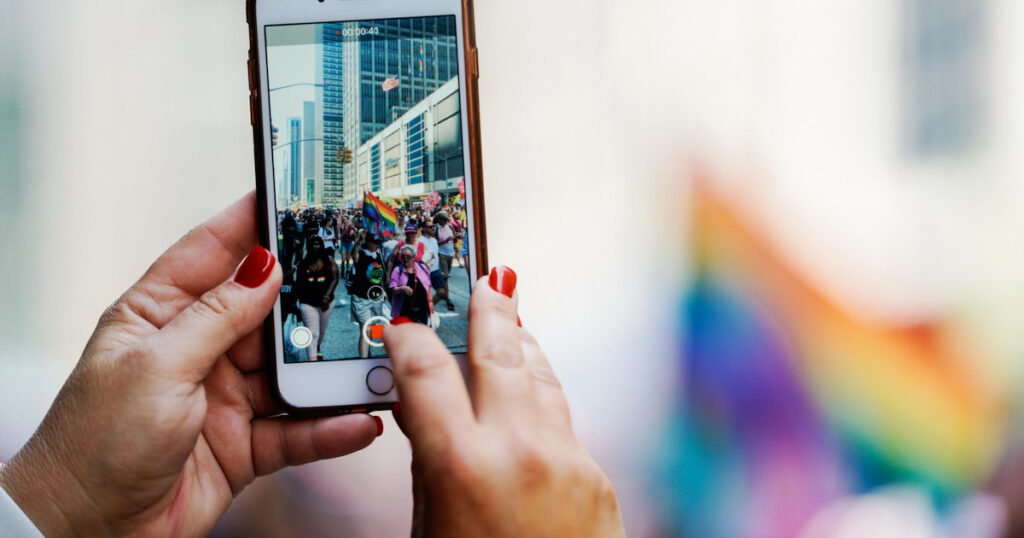From fending off attacks against children in foster care to fighting for the rights of nonbinary people to be recognized as who they are, we’re only two weeks into 2020 and there is no shortage of action.
Here are six battles happening around the country that LGBTQ people need to watch out for this year.
Employment
In October, the Supreme Court heard arguments in multiple cases that could have far-reaching consequences for LGBTQ people: Zarda v Altitude Express – a case on behalf of Don Zarda, a late skydiving instructor who was fired because he was gay – and EEOC v. RG & GR Harris Funeral Homes – a case on behalf of Aimee Stephens, a transgender woman who was fired when she informed her boss that she intended to transition. These cases could determine once and for all if the Civil Rights Act of 1964 protects LGBTQ people in the workplace. Title VII of the Civil Rights Act prohibits discrimination because of sex, which should necessarily include sexual orientation and gender identity. We expect to receive a decision before the end of this Supreme Court term.
Public Accommodations
Last week, the Oregon Court of Appeals heard oral arguments for the second time in Klein dba Sweetcakes by Melissa v. Oregon Bureau of Labor and Industries, the case of a Portland-area bakery that denied service to a lesbian couple based on religious objections. Two years ago, this same court upheld a favorable decision in this case from a state agency in 2015, but the U.S. Supreme Court ordered it to reconsider its prior ruling in light of the 2018 Masterpiece Cakeshop v. Colorado Civil Rights Commission decision. This is just one of a slew of similar lawsuits playing out across the country involving the weaponization of religion to discriminate against LGBTQ people.
Adoption & Foster Care
Litigation is ongoing in two lawsuits against the federal government for allowing taxpayer money to fund foster care agencies that discriminate against LGBTQ parents. In Marouf v. Azar, a same-sex couple from Texas was denied the opportunity even to apply to serve as foster parents for refugee children because, as they were told, they did not “mirror the Holy Family.” In Rogers v. United States Department of Health and Human Services, a married lesbian couple was turned away by a government-funded foster care agency that excludes prospective foster parents who are not evangelical Protestant Christian or who are same-sex couples of any faith. At least eight additional states have passed laws allowing providers to use a religious litmus test for whom they serve, and some state laws even allow taxpayer-funded providers to give “religious education” to children. More harmful bills have already been introduced this year, and the Tennessee legislature even devastatingly passed one yesterday.
HIV+ Military Service
Last week, in an important victory, the Fourth Circuit Court of Appeals upheld a lower court ruling in Roe & Voe v. Esper that halted efforts by the Trump administration to discharge members of the Air Force because they are living with HIV. As the ruling stated, “any understanding of HIV that could justify this ban is outmoded and at odds with current science.” Two other lawsuits similarly challenging the Pentagon’s discriminatory discharge policy targeting servicemembers living with HIV – Harrison v. Esper and Deese & Doe v. Esper – are also ongoing.
Trans Youth
In early December, the Eleventh Circuit Court of Appeals heard arguments in Adams v. The School Board of St. Johns County, Florida, a case in which transgender high school student Drew Adams was barred from using the correct bathroom. Drew’s case became the first lawsuit involving a transgender student equal access to restrooms to go to trial, and in July 2018, a federal district court in Florida vindicated Drew’s right to equal educational opportunity, including equal access to the boys’ restroom while at school. A decision from the court of appeals is expected later this year.
Nonbinary Identity Documents
Next week, the Tenth Circuit Court of Appeals will hear arguments in Zzyym v. Pompeo, a case against the State Department on behalf of intersex citizen Dana Zzyym, who was denied a passport because they could not accurately choose either male or female on the application form, and the form does not provide any other gender marker designation. In November 2016, a judge found that the State Department violated federal law and ordered the agency to reconsider its decision. The following year, in light of the agency’s continuing refusal to recognize an appropriate gender marker, a federal court reopened the case. In late 2018, a court again found that the State Department violated federal law in continuing to deny Dana an accurate passport. Last year, the State Department asked the court to stay its order, which was also denied. Arguments are scheduled for January 22nd.

